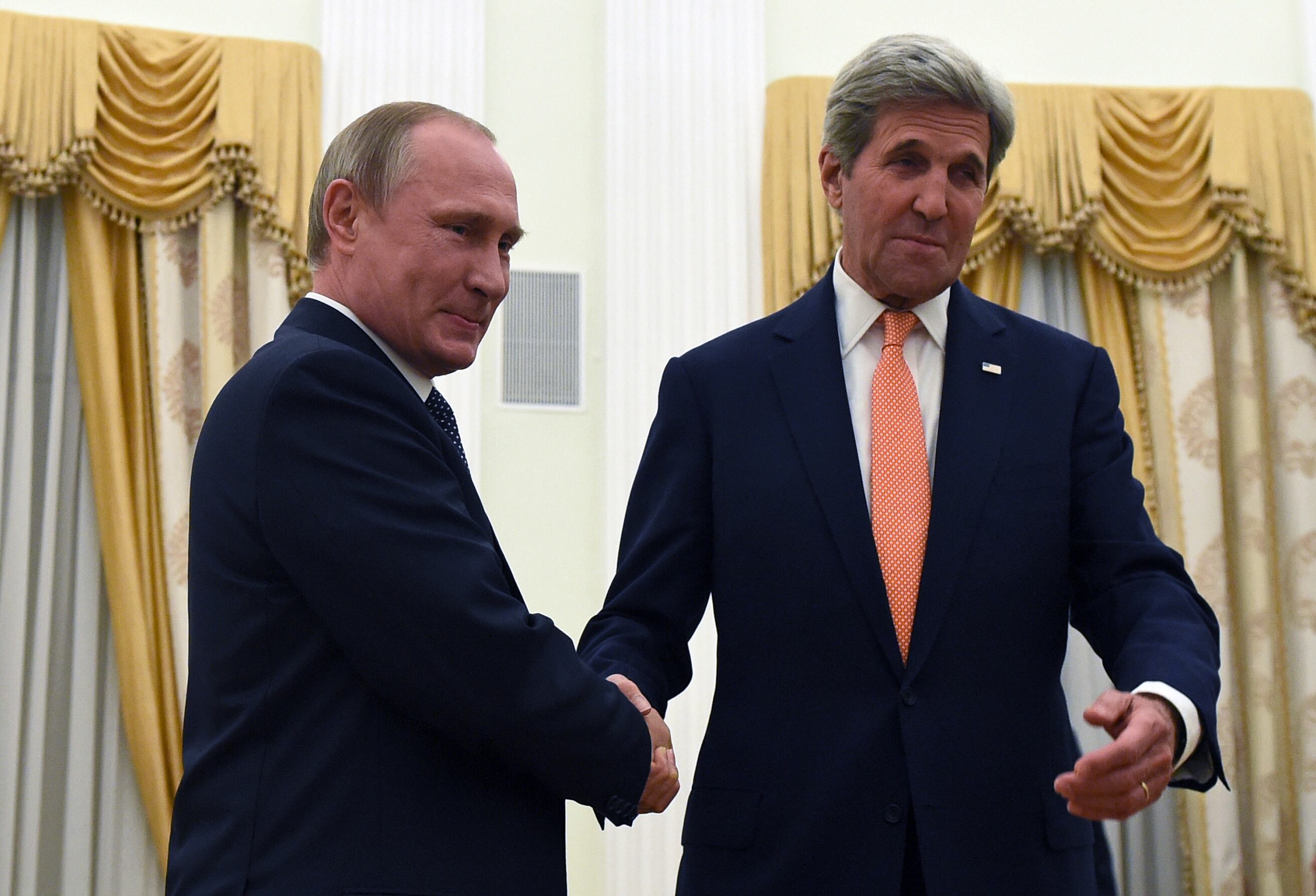The military's top officer said Monday that any deal for military cooperation with Russia in the fight against extremists in Syria will have to protect the "operational security" of the ongoing U.S. mission.
"We're not entering into a transaction that is based on trust," Marine Gen. Joseph Dunford said at a press briefing at the Pentagon.
"There will be specific procedures and processes in any transaction that we might have with the Russians that would account for protecting our operational security," said Dunford, the chairman of the Joint Chiefs of Staff.
The Obama administration is considering a plan to cooperate with Russia in Syria by sharing intelligence and mounting joint airstrikes on Islamic State militants, the local al-Qaida affiliate known as al Nusra and other Syrian rebel groups. The Obama administration hopes that a deal will help build Russian support for a political settlement to the 5-year-old civil war.
Dunford has been providing input for the U.S. negotiations led by Secretary of State John Kerry about potentially expanding U.S. and Russian cooperation in Syria, the general said. For now, U.S. and Russian cooperation in Syria is limited to a memorandum of understanding for sharing Syrian airspace, which focuses on safety and avoiding aviation mishaps between the two air forces.
Kerry traveled to Moscow to meet with Russian President Vladimir Putin on July 14.
Some U.S. military and intelligence officials oppose the proposed deal and say Russia cannot be trusted with classified American intelligence.
Dunford and Defense Secretary Ash Carter have avoided public discussion of the politically sensitive negotiations between the Obama administration and Russia.

U.S. Secretary of State John Kerry, right, greets Russian President Vladimir Putin during their meeting at the Kremlin in Moscow on July 14.
Photo Credit: Vasily MaximovAP
At Monday's Pentagon press briefing, Carter made the case for a potential deal with the Russians.
"Our interests are to see a political transition promoted, number one, and that puts an end to the violence in Syria and gives the Syrian people back a government and a life that they deserve. And second, the defeat of extremism there and in Iraq," Carter said.
"Those are the U.S. interests. And to the extent that Russia can align with U.S. interests, we work with them as has been the case in Iran, North Korea and other places where U.S. and Russian interests have aligned. It's the alignment of those interests that Secretary Kerry's exploring," Carter said.
The potential deal comes at a time of rising tension between the U.S. and Russia on issues beyond Syria.
Democratic Party officials in Washington say the Russians hacked into their email services and recently released a trove of confidential correspondences aimed at discrediting Hillary Clinton and influencing the outcome of the American presidential elections in November.
In Europe, the Russian military has conducted a series of aggressive actions and maneuvers against U.S. military ships and planes.
U.S. officials say the official policy toward Russia in Europe is now one of "deterrence" and the U.S. Army plans to send an additional combat brigade to Eastern Europe to reassure American allies in the region.
Andrew Tilghman is the executive editor for Military Times. He is a former Military Times Pentagon reporter and served as a Middle East correspondent for the Stars and Stripes. Before covering the military, he worked as a reporter for the Houston Chronicle in Texas, the Albany Times Union in New York and The Associated Press in Milwaukee.





